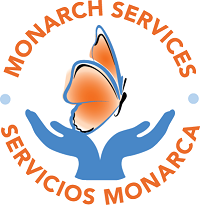While January 1, 2020 marked the beginning of a new decade, it also marked the first day of the tenth annual National Slavery and Human Trafficking Prevention Month. The International Labour Organization estimates that there are 40.3 million victims of human trafficking globally and that 81 percent of them are trapped in forced labor, 25 percent are children and 75 percent identify as women and girls.
Started by a Presidential Proclamation made by President Barack Obama in 2010, National Slavery and Human Trafficking Prevention Month is intended to raise public awareness of human trafficking and modern-day slavery, and equip community members with tools to identify and combat exploitation. January 11 specifically is honored as National Human Trafficking Awareness Day. Additionally, National Slavery and Human Trafficking Prevention Month culminates in the annual celebration of National Freedom Day on February 1.
Human Trafficking is a crime that involves the exploitation of individuals for the purpose of labor or commercial sex through the use of force, fraud or coercion. Human Trafficking is often regarded as modern-day slavery and is a violation of basic human rights. Human traffickers target all populations around the world including here in Santa Cruz County. Children, young adults and immigrants are the most vulnerable, particularly runaway and homeless youth.
“We often think of human trafficking as a distant issue,” Interim Executive Director Kalyne Foster-Renda said. “However, trafficking is happening globally, nationally and even locally in Santa Cruz County.”
Monarch Services works daily to support survivors of human trafficking and to prevent future exploitation. Our advocates and volunteers have completed a 65-hour training including a human trafficking awareness curriculum. Our advocates are highly trained to identify signs of potential exploitation and provide support to those who may have been victimized.
Actions you can take to address human trafficking:
• Learn to recognize signs of potential exploitation
• Listen to and validate survivors of trauma
• Use social media to raise awareness of trafficking among your peers
• Never refer to trafficking survivors as prostitutes
If you are a survivor of human trafficking or know someone who may need help, please call our 24-hour, bilingual, confidential crisis line at 1 (888) 900.4232.
Additional resources may be found here.
